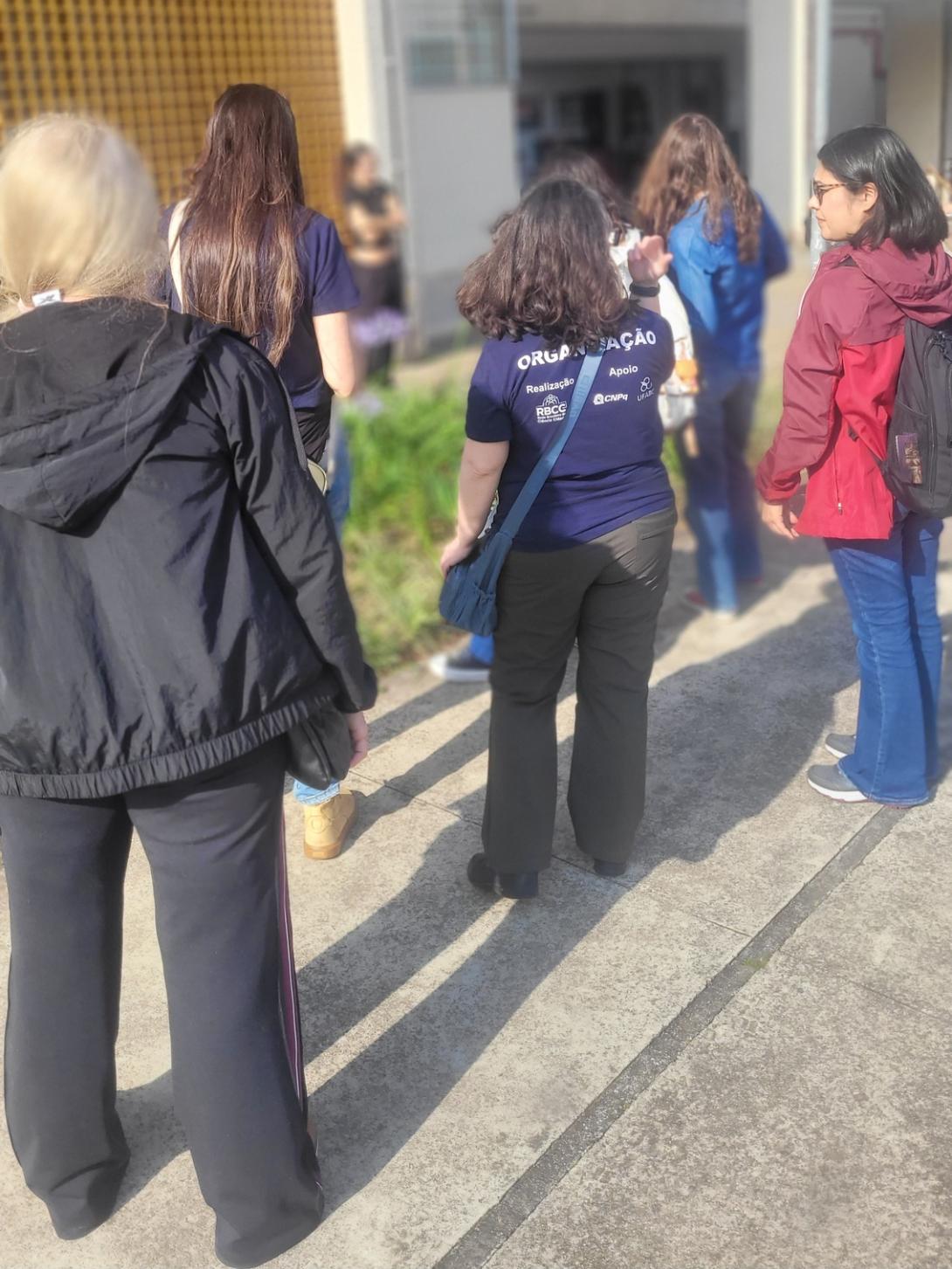Field Workshop on Pollinator Monitoring & Citizen Science — UFABC
On November 7, 2025, our Ilha do Mel Nativo team joined the hands-on workshop “Monitoring Pollinators through Citizen Science” at the Federal University of ABC (UFABC), São Bernardo do Campo campus. The session combined a concise theoretical overview with practical field activities and the use of citizen-science tools to record plant–pollinator interactions.
We are grateful to the facilitators Prof. Natalia Pirani Ghilardi-Lopes, Dr. Sheina Koffler, and Maria Eduarda Freitas for the open, generous teaching environment and for connecting academia and community around a shared goal: learning how to observe, record, and protect pollinators. The workshop is part of UFABC’s broader effort to strengthen citizen science and biodiversity monitoring.
After the introductory class, we moved outdoors for a guided practice using two complementary tools: the Guardiões dos Polinizadores platform/app to register animal-plant interactions with georeferenced photos, and the FIT Count protocol (Brazilian adaptation of the UK PoMS method) to perform timed counts of flower visitors. Together, these approaches make it simple for non-specialists to produce useful data while learning in the field.
Representing Ilha do Mel Nativo, Rodrigo Castro, Renata Catena de Castro, and Elizabeth Broch took part in every step — from field observation to data entry — reinforcing our commitment to continuous learning and to working side-by-side with universities that keep these knowledge channels open to the public.
The momentum around pollinators has grown significantly in recent years in Brazil and across Latin America, with new collaborations, capacity-building, and public policies emphasizing conservation and data transparency. We’re glad to contribute locally, connecting community, education, and practical monitoring to safeguard biodiversity that sustains food security and healthy ecosystems.
A follow-up online meeting is planned for early December 2025 to review results and next steps with the network. We will share updates and invite new volunteers to join future activities.
References & useful links
- UFABC — Extension activities (Prof. Natalia P. Ghilardi-Lopes) — Official UFABC page listing extension actions, including the workshop “Monitoring Pollinators through Citizen Science.”
- UFABC opportunity: “Citizen science & pollinators” — UFABC announcement showing the university’s ongoing line of work on citizen science with pollinators, led by Ghilardi-Lopes and Koffler.
- Guardiões dos Polinizadores — web platform — Brazilian citizen-science system to store and share observations of animal-plant interactions; supports uploads via web and mobile app.
- Guardiões app — Android — Mobile app used to submit georeferenced records of plant–pollinator interactions in the field.
- Guardiões app — iOS — iPhone/iPad app version provided through the Guardiões project’s Linktree.
- FIT Count Brasil — protocol overview (USP BeeKeep) — Brazilian adaptation of the UK PoMS timed flower-visitor count protocol, with guidance and materials for local use.
- FIT Count — Android app (UK Centre for Ecology & Hydrology) — Official app for timed counts of flower visitors; widely used in Brazil since 2021.
- Book: “Citizen Science & Pollinators in South America” (free) — Open-access book organized by Ghilardi-Lopes & Zattara; brings methods, cases and resources for practitioners and educators.
- Rede Brasileira de Ciência Cidadã (RBCC) — National Brazilian Citizen Science Network coordinated by USP, promoting collaboration between universities, schools and civil society to develop and share citizen-science projects across the country.
For press inquiries, partnerships or to volunteer with our pollinator activities in Pontal do Sul and Ilha do Mel, please contact the Ilha do Mel Nativo team.


Comentários